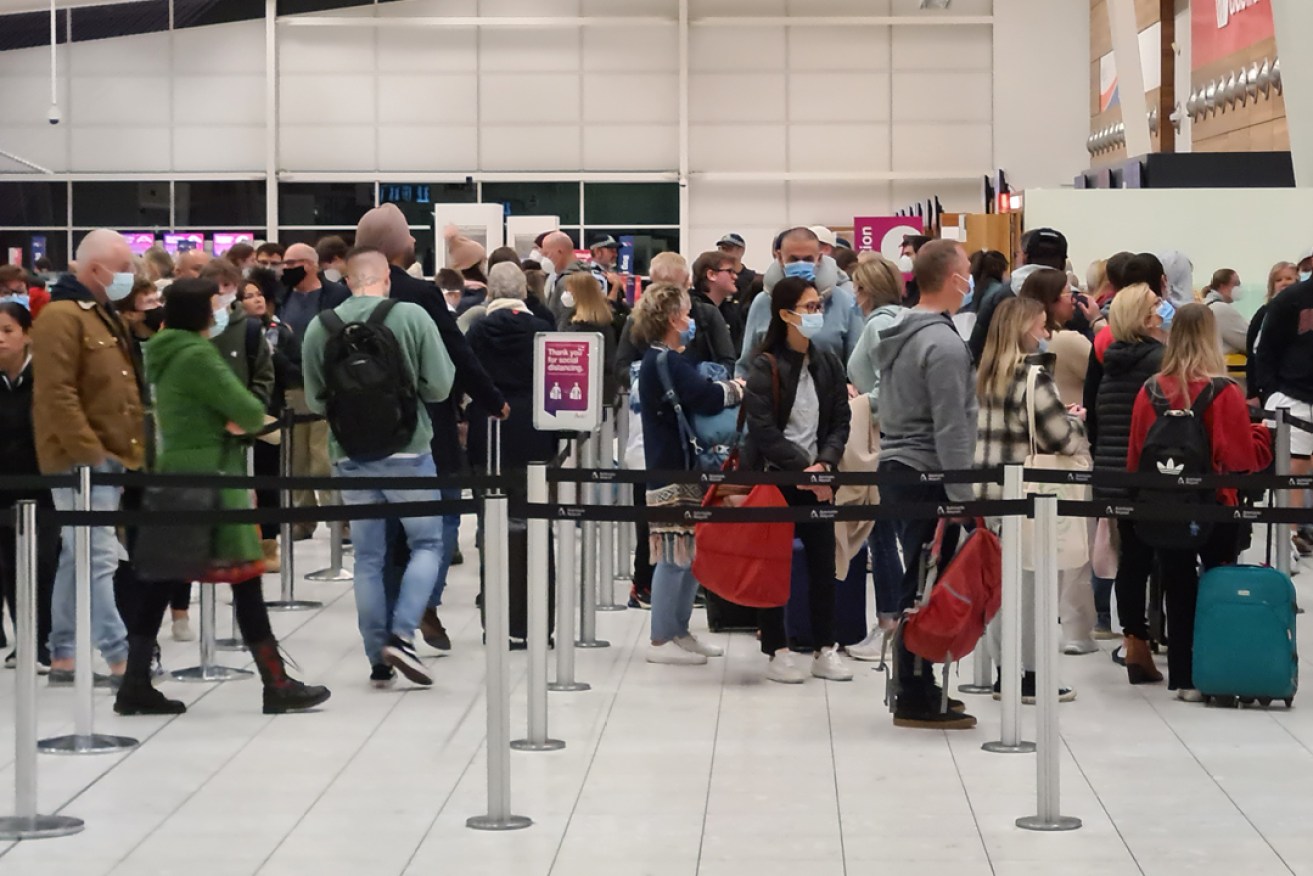Call to make Australian airlines pay more for delays
The Federal Government is being urged to make new laws to force airlines into better compensating passengers hit by ongoing flight delays and cancellations.


Photo: Andrew Spence/InDaily
Ahead of the busy Easter travel period, the Australian Lawyers Alliance is calling for the Federal Government to develop a compensation scheme to protect passenger rights, similar to ones running in Canada, the United Kingdom and the European Union.
Its call to make airlines more accountable to their customers is made in a submission to the federal Aviation White Paper.
The alliance’s calls are backed by a report released this month by the Australian Competition and Consumer Commission (ACCC) showing nearly a quarter – 23.3 per cent – of domestic flights arrived more than 15 minutes late in January this year.
Travel lawyer and alliance spokeswoman Victoria Roy said the organisation’s submission calls on the government to create separate terms of reference in the Aviation White Paper to focus on creating a compensation scheme.
Such a scheme could compel airlines to financially compensate passengers for flight delays and cancellations under their control, to inform passengers of delays in “a timely manner” and provide accommodation if there are significant delays.
Roy used a Bali flight that was turned around after several hours in the air during the Christmas holidays as an example of how comparative overseas schemes worked.
The Jetstar flight was forced to return to Australia as it had not received correct approvals from Indonesian authorities.
“The passengers received a $200 flight voucher – under the EU scheme they would have received about $1000,” Roy said, adding that delays continue to impact travellers.
“Monthly statistics are published by the Bureau of Infrastructure and Transport Research Economics. The February 2023 on-time statistics show Australians are still experiencing significantly lower-than-average performance.
“A compensation scheme would provide incentives for airlines to run on time and some accountability to consumers.”
Jetstar reported the highest number of delays in the ACCC report, with the data showing 34.6 per cent of flights had delays of more than 15 minutes and 7.3 per cent of its flights were cancelled.
Qantas, which reported an underlying profit before tax of $1.4 billion for the first half of the 2022-2023 financial year, created the most “contacts” to the ACCC last year.
“In 2021–22 the ACCC received 1740 contacts involving Qantas, the most of any company and 68 per cent higher than the previous year,” the report said.
“Qantas needs to do more to adequately invest in its systems, processes and people to dramatically improve its customer contact services and customer dispute resolution.
“While the broader industry struggled with processing COVID-19 related cancellations and remedies, and the surge in demand since pandemic-related restrictions were eased, the ACCC received fewer contacts about Jetstar (down 33% to 544) and Virgin Australia (down 27% to 359).
“While a contact does not necessarily mean there has been a breach of the law, an increased number of contacts is generally indicative of a high level of dissatisfaction with that company.”
Roy believed airlines would be more likely to ensure rosters were better staffed to cover for illnesses and poor weather if they were forced to pay compensation to passengers for delays or cancellations under their control.
The alliance is a not-for-profit national association of lawyers, academics and other professionals established to benefit the community.
Tourism Industry Council SA chief executive officer Shaun de Bruyn refrained from making a specific comment about the call for new compensation rules but acknowledged COVID and worker shortages meant the aviation industry had experienced some “incredible lows”.
“What customers want is an efficient, effective aviation industry that gets them to their destination,” de Bruyn said.
Qantas did not respond to questions before deadline.




